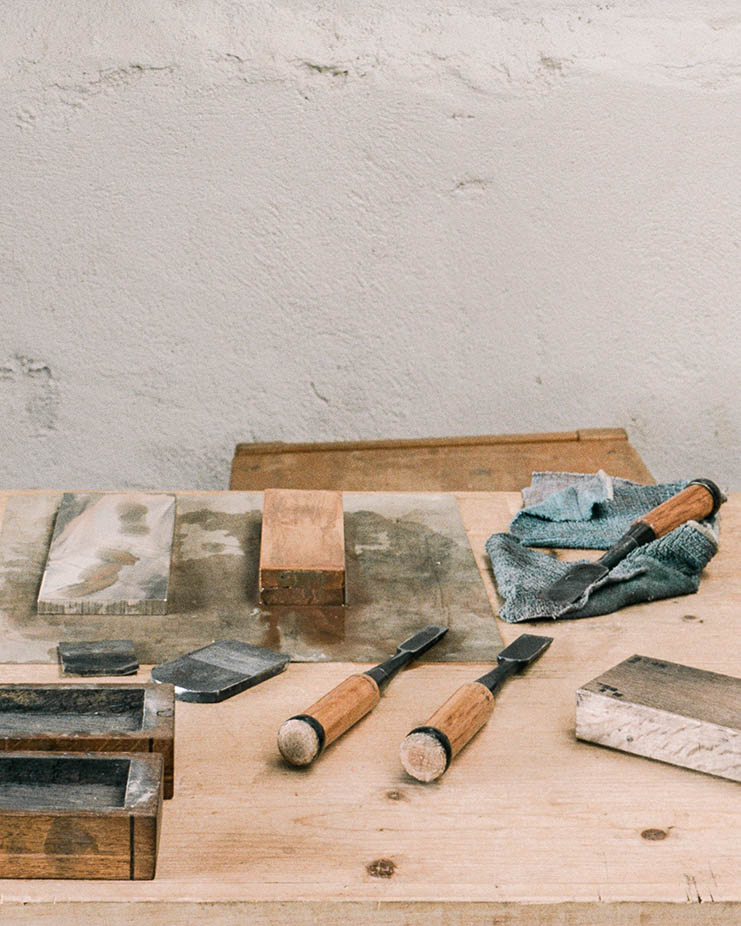
Workshop n. 2 – Uncommon Woods
Uncommon Woods – Would wood be a fruit?
Woodcarving workshop
17–19.04.2025
Topolò/Topolove
- - - -
Would wood be a fruit?
Footnotes to Uncommon Woods
Antonio Frederico Lasalvia
Of all of the fruits that fruit trees bear, wood is perhaps the most uncommon. Although lumber is available all year round, it is much harder to harvest than cherries or chestnuts – not to mention that, unlike other yields, timber is not a very agreeable thing to taste. Or is it?
As the Uncommon Fruits project ripes, I find it charming how much of its sense is tied to an incidental event: the discovery of a fallen wild cherry tree in the Spring of 2024. Suzanne has written beautifully about it, and the poetics of her description also find expression in the title, as she calls her text “Breath of a fallen cloud.”
Four seasons later, we are back at the site of the fallen cloud only to find that its spray has dissipated. As the tree passed away sometime last winter, its blossoms are not to be renewed this spring. Rather than a sad thing, this inevitable stage in the cycle of a tree’s life presents us with yet another opportunity. If in the past we have tasted the flowers and fruits grown by this plant, we are now gifted with an abundant harvest of its wood.
By using the tree to taste the recipes inspired by it, its afterlife is not only a rhetorical allusion, but also a material presence to be physically felt. And so we decided to carve different vessels – spoons, bowls and other utensils – in order to better incorporate what was once a fallen cloud.
Diogo and Madalena guided us through their craft. For three days, hatchets bit into bark, hammers stroke gauges and knives sliced off small chips of wood. Although our hands were constantly touching things, my memory of this time is tied to other two senses: smell and hearing. The atmosphere of us working together was filled with the fragrant scent of green cherrywood, which reverberated with the continual percussion of tools at work.
By the end of it, the experience of working with this tree was complemented by yet another sense, as we got a taste of the wood itself. Phillip and Suzanne prepared a tea made from roasted cherry-wood chips, freshly gathered at the participant’s workbenches during the workshop. This beverage was served in the forest, by the fallen cherry, in vessels made from the wood collected there.
As we stood by the tree and drank the tree’s tea from containers made out of that very tree, I could not help but think that we ourselves were becoming tree-like. We warmly welcomed the movements and transformations around us as we stood among others with ease and lost all sense of time. With this tender thought, I said to myself: wood is indeed very fruitful.
Video by Antonio Frederico Lasalvia
- - - -
If you'd like to join us, please send us a little note at uncommonfruits@gmail.com.
Following the quest for Uncommon Fruits, this workshop approaches another yield coming from fruit trees: wood. How do we use timber in a non-predatory manner? Can the specificities embodied in the irregular growth of a branch inform the process of shaping artifacts? And how do we pass on the knowledge held by working hands?
In this 3 day workshop, Diogo Amaro and Madalena Vidigal will introduce the basics of wood carving, from material collection and processing to design and tool maintenance. Participants will engage in a conversation with material in order to make small vessels – spoons, cups and bowls – that will act as mediators in the tastings of the recipes developed for Uncommon Fruits.
- - - -
Programme:
Day 1
Morning: Collecting materials in the woodland. Processing pieces into workable sizes.
Afternoon: Introduction to the tools for carving and how to handle them safely. Sharpening and setup tools for work. Principles for designing artifacts in wood.
Day 2
Morning: Designing with materials and tools I: Gauges and hammers.
Afternoon: Carving and finishing.
Day 3
Morning: Designing with materials and tools II: Hook knives.
Afternoon: Carving and finishing.
- - - -
Diogo Amaro is an architect and cabinetmaker based in Porto. After several years working in architecture, he spent two years learning from the master cabinetmakers at FRESS, absorbing all the knowledge they had to transmit. In 2022, he participated in the Homofaber event in Venice and attended a workshop with Japanese master carpenter Takami Kawai and designer Wataru Kumanu at Domaine de Boisbuchet in France. He is currently developing MATERIA pieces.
Madalena Vidigal is an architect and independent researcher working across curation, publishing, and design. Her work expands the dialogue between research and practice, valuing legacy, communality, and sufficiency. With a Master at FAUP and an exchange at the Accademia di Architettura di Mendrisio, she has collaborated with several architectural studios while deepening her knowledge of ecological building techniques through hands-on experiences in Portugal and Morocco.
Photo: Francisco Ascensão